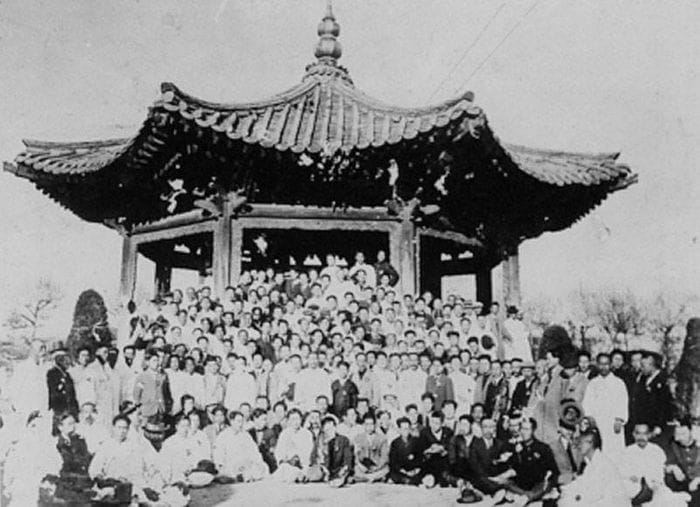Korea's May Day: Tradition and Renewal

I wrote about the history of May Day in Korea and the significance of this year struggle on Asian Laour Review.
请大家关注这篇文章,我写了一篇文章关于韩国的劳动节历史和今年斗争意义。全亚洲民众团结起来!
https://labourreview.org/may-day/
In 1923, two thousand Korean workers celebrated Labor Day for the first time. Although a planned general strike was suppressed by the Japanese colonial government, the Chosun Federation of Labor held public talks and demonstrations across the country. All through the repressive years of the 1930s, May Day continued to be celebrated by workers and unions who proclaimed, “Let’s celebrate May Day with a political general strike!” After Korea’s liberation from Japanese colonialism, the socialist-led General Council of Korea Trade Unions (GCKTU) celebrated the 60th anniversary of May Day on May 1, 1946.
During the U.S. Military Trusteeship (1945-48), the military cracked down on left-wing unions, warning that “any organization or association engaged in a political movement cannot be recognized as a labor union, regardless of its name.” Instead, it supported the pro-government, right-wing Federation of Korean Trade Unions (FKTU). In 1957, President Rhee Seungman declared March 10, the date of the FKTU’s formation, a pro-government “Labor Day” in honor of the “anti-communist workers’ organization”.
Under the military dictatorship of the 1970s and 80s, workers were subject to extreme exploitation. The July-September 1987 workers’ uprising marked an important turning point in South Korean social movements by reclaiming May Day. Tens of thousands of workers fought through tear gas on the Yonsei University campus. The new, progressive Korean Confederation of Trade Unions (KCTU), founded in 1995, now holds rallies every year on Labor Day in major cities across the country.
For me, May Day is a day of struggle by the working class and a time to show the strength of the labor movement. This year, we want to stop the Korean government’s anti-worker labor law reforms. President Yoon Suk Yeol has attempted to expand the flexible working hour system, but it is being pushed back by popular opposition. The government approval rate has fallen below 30 percent.
I also hope on this May Day, with East Asia being threatened by the recent military build-up, including the South Korea-U.S.-Japan military alliance, China’s military exercises, and North Korea’s missile tests, we can building international working-class solidarity for peace in Asia.